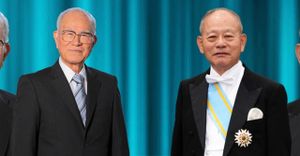Allegations of illegal surveillance targeting Koo Ja-Cheol have rattled the South Korean political scene, raising serious concerns about potential impropriety among officials. These claims center on Kim Seong-hoon, the head of the Presidential Security Service, who is accused of attempting to erase records of communications related to the surveillance.
Details surrounding this controversy emerged amid the heightened scrutiny following the declaration of martial law on December 3 of last year. Reportedly, this was the point when Kim, under the guise of President Yoon Suk-yeol’s orders, instructed authorities to delete specific records from secure communication devices, known as 'bi-hwa phones' specialized for classified communications.
Kim's motivations appear to stem from the chaotic circumstances surrounding the enforcement of martial law, which has led to increased scrutiny of various presidential actions. This included purported discussions targeting opposition lawmakers, making the allegations seem even more serious against the backdrop of democracy and governance.
During recent hearings at the National Assembly, Kim faced tough questions about the accusations. "He claimed it was the President’s instruction," reported HanKyeore, reflecting the defensive stance Kim took when pressed about his actions and the legality of his instructions.
Over the past weeks, police and special task forces have conducted multiple investigations and searches to verify these allegations. Investigators intended to gather solid evidence from the Presidential Office and the President's residence, focusing on the 'bi-hwa phone' servers, which record phone calls but are supposed to be secure against interception or unauthorized access.
Despite initial attempts for seizure of evidence, these searches have often been thwarted. Reports suggested resistance from Kim’s unit, with previous searches failing due to what appeared to be coordinated efforts to block the authorities' access to potential incriminatory materials.
The idea of deleting records directly associated with government communications introduces legal and ethical questions for Kim and others involved. The ramifications of these accusations, should they be proven true, pose risks for the credibility of the current government and invoke concerns about the willingness of officials to conceal controversial operations.
The investigative timeline is particularly significant. After the initial martial law proclamation, reports circulated linking Kim’s name to efforts of evidence tampering, claiming he directed the servers' administrator to erase data from communication devices used by top military and police officials. According to insiders, when pressed for justification, Kim consistently pointed back to directives from the President.
"According to our discussions during the hearings, the server administrator clearly indicated disbelief over the legality of Kim's orders, recognizing the potential for major repercussions," another source recounted during the contentious assembly sessions.
These sessions are not just isolated events, as they reflect the broader political climate where every decision made during the martial law period is under careful inspection. Should these allegations lead to definitive proof of misconduct, they could trigger significant political fallout extending beyond just Kim.
Kim’s position was initially precarious as calls mounted for accountability. Notably, on one occasion, after law enforcement initiated efforts to document incidents of Kim's alleged misdeeds, the prosecutor’s office chose to dismiss the request for his arrest, citing no immediate threat of evidence tampering or flight risk.
Despite the dismissal, the symbolic optics of Kim's eventual release and return to his role sparked outrage among opposition figures and civil rights advocates. With calls for transparency gaining traction, the public's reaction continues to intensify, requiring government officials to confront scrutiny over their responsibilities.
The notion of illegal surveillance raises fundamental questions about privacy, state power, and democratic norms. If Kim's actions are corroborated, they could suggest systemic issues within the presidential administration, prompting widespread examination across all levels of government.
South Korea stands at a crossroads with foreign relations and internal cohesion riding on the integrity of its leaders. These allegations are emblematic of larger questions likely to face major reckonings amid increased investigative pressure and demands for reform within politically sensitive institutions.
Moving forward, how the government responds to these serious allegations will undoubtedly shape not only the careers of those implicated but also the future of political accountability and transparency. Increased vigilance from media and civil society will also play pivotal roles as the nation navigates through this storm.
The scrutiny on Kim Seong-hoon's actions highlights the urgency for reflective governance, amid concerns over the misuse of power whenever heightened security measures are employed.



